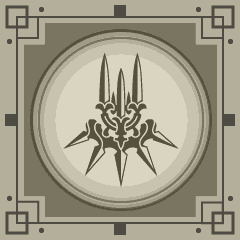Your life is not meant to be a story
Stories share common shapes in every culture, every civilization, every ethnic group. Stories always deal with the evolution of a character’s state along the axis of good or ill fortune. Most children tales, for example, narrate the quest of a hero who often goes through painful events but ultimately triumphs and ends in a better situation than their initial one. This omnipresent feature might be explained by our appetence for drama: much like how going to the theater can be a satisfying way to experience intense emotions as our hearts are torn by the character’s despair, we enjoy listening to stories which help us escape the boredom of our daily lives, which put us amid higher stakes than we will ever experience. A fight against the worst evil a holy kingdom has ever faced, a love story with more passion than any other romance… I could surely go on with many more examples. My point, however, is that this is a double-edged sword: while those stories were created as entertainment, along the way, they also became a prism through which we started to observe our own lives. Indeed, similarly to how the steps of a hero’s journey are judged good or bad depending on their impact on their quest, we constantly try to determine whether what happens to us is good or bad with respect to our lives' value as a whole.
Much to our chagrin, there is only one acceptable answer: we do not know, and better yet, we can never know. The obvious justification for that is that a certain event can be a blessing in disguise, and vice versa. “My car’s engine broke down this morning” can take wholly different meanings depending on the context. Especially if you were supposed to go to work at the World Trade Center on 9 / 11. However, I would like to emphasize on a more deeply-rooted, adverse consequence of our distorted view of our own lives: it tends to prevent us from making a decision. Obsessed as we are about weighing the pros and cons, about deliberating over the best course of action to take, over which choice will result in the best outcome, we become convinced that there is a path which will lead to an ideal situation or a perfect outcome, and that knowledge strikes us with great fear: “what if I’m wrong?” you wonder, not daring to push the button. I argue that this fear is irrational, because it is based on an irrational belief itself. The perfect outcome will only ever exist in your imagination. Whatever will be, will be. But what it will be depends only on what you do now.
Therefore, rather than ponder for an unhealthy amount of time on your actions, act. Strive to find the courage to move forward for all your hesitations, for all your weaknesses, for all your faults. Strive to always do not what looks right, but what feels right to you. Strive to fill your life with honesty and effort. Strive to be true to yourself at all times. As Danish philosopher Søren Kierkegaard once wrote:
“Life can only be understood backwards; but it must be lived forwards.”
Our quest to good fortune is misguided: we believe we search for the road to a destination where we will, like our favorite heroes, ultimately find bliss. But living our lives for what it is; witnessing the miracle of constant change, of life’s unpredictable highs and lows; navigating through the depths of despair and through the peaks of happiness; and yet, retaining our ability to find joy along the way, in the small and unremarkable moments, is, perhaps, our true good fortune. Receiving an unexpected smile from a stranger, watching a rainy afternoon through a window or appreciating the company of your loved ones: simply opening our consciousness to those mundane happenstances might bring us closer to our paradise, closer than where blindly chasing after it could ever lead us to.
Your life is not meant to be a story: it bears no meaning in and of itself. Appreciating life in spite of its absurdity is what makes it worth living.
This text was inspired by the thought-provoking video The Lie That Every Story Has In Common.
